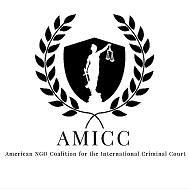As time drags on, Palestinian leaders and citizens become ever more eager to secure a formal investigation by the International Criminal Court (ICC) in The Hague into alleged Israeli crimes against Palestinians. Thus, in May of this year the Palestinian Authority (PA) formally referred its situation to the Court, hoping that this would speed up the ICC prosecutor’s decision on an investigation. Before the referral, Palestine had become a member state of the Court. This status gives the Court jurisdiction to possibly try Israeli government and military officials for crimes they have committed on the territory of Palestine even though Israel is not a member of the ICC.
The referral by the PA accuses Israel of committing crimes under the jurisdiction of the Court, such as: genocide, crimes against humanity, war crimes and the ‘displacement and replacement’ of one population for another. The latter crime appears to be Palestine’s strongest case, given that the settlements are a well-documented Israeli government policy. Settlements have been specifically denounced by the international community, specifically through UN Security Council resolutions such as the most recent one, Resolution 2334, adopted in 2016. Yet, to this day, more than 600,000 Israelis have settled in the West Bank and East Jerusalem, with more on the way and no signs that this policy will be abated. Aside from the Israeli settlement policy, the Palestinian referral details Israeli crimes regarding thousands of Palestinians killed over the past three attacks on Gaza and most recently in protests through Israel’s excessive use of force. However, the prosecutor’s mandate is to investigate crimes committed on both sides of a situation. Thus, the Office of the Prosecutor (OTP) will simultaneously and equally look into alleged crimes committed against Israelis by Palestinians. For their part, Israel accuses (although not yet formally) the Gazan militant group Hamas as well as Palestinian leaders of vigorously conducting attacks that continuously endanger Israeli civilians.
However, Palestinians have waited more than a few months hoping that the OTP will decide to open a formal investigation. The Court’s chief prosecutor, Fatou Bensouda, first opened a preliminary examination into the Israeli-Palestine situation back in January 2015, when Palestine became an official State Party to the ICC, thus enhancing the Court’s jurisdiction. Since then, Palestinian government representatives have presented the OTP with a slew of documents suggesting Israeli officials are liable for systematic criminal policies that include apartheid and the mass killings of unarmed protesters in Gaza. The Prosecutor has had more difficulty in obtaining trial-worthy evidence of Palestinian crimes.
Meanwhile, in what may be an indication that the Court senses that a decision of the Prosecutor is nearing, the Court’s Pre Trial Chamber has ordered the Registry to establish and implement a “system for public information and outreach activities for the benefit of the victims and affected communities in the situation in Palestine.” This order unfortunately conveys the erroneous message—one that Israel will use to further its argument that the Court is biased against it—that victims are solely Palestinian. Therefore, it would behoove the Court to clarify this statement to include victims in Israel as well. However as tensions rise between both sides, and this case becomes even more politically contested, the Prosecutor’s decision on an investigation has becomes ever more difficult.
Christel M. Mena

